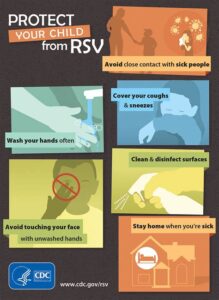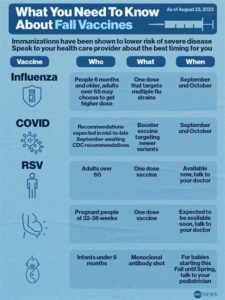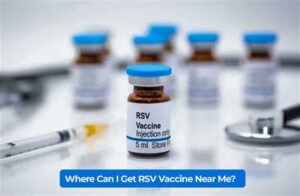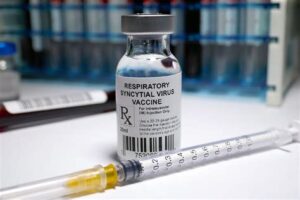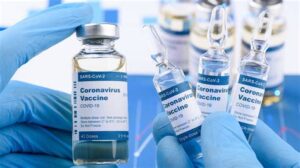Learn about RSV, vaccination importance, effectiveness, optimal timing for babies, and potential risks associated with RSV vaccines in this comprehensive guide.As a parent, ensuring the health and well-being of your baby is paramount, and one significant concern during the early months of life is respiratory syncytial virus (RSV). RSV is a common virus that can lead to severe respiratory infections in infants. With the introduction of vaccines aimed at preventing RSV, many parents find themselves wondering about the safety and timing of these immunizations. In this blog post, we’ll dive into crucial aspects of RSV, the newly developed vaccines, their effectiveness, and the recommended vaccination timeline for babies. Additionally, we’ll discuss potential risks associated with RSV vaccines, empowering you with the knowledge to make informed decisions about your baby’s health. Join us as we explore this vital topic for your little one’s well-being.
RSV: What is it?
Respiratory Syncytial Virus (RSV) is a common respiratory virus that primarily affects infants and young children. It is a leading cause of bronchiolitis and pneumonia in children under the age of two. RSV spreads easily through respiratory droplets when an infected person coughs or sneezes, making it highly contagious.
The virus typically causes mild, cold-like symptoms in most healthy individuals. However, in some cases, particularly in babies born prematurely or those with underlying health issues, the infection can become severe. Symptoms of RSV infection can include coughing, wheezing, and difficulty breathing, which may lead to hospitalization.
Given its potential severity, understanding the implications of RSV is crucial. Parents should be aware of the symptoms and seek medical advice if they notice their child exhibiting signs of severe respiratory distress. Early intervention can significantly improve outcomes for infants affected by RSV.
Vaccination for RSV
Respiratory Syncytial Virus (RSV) is a common virus that can lead to serious respiratory infections, especially in infants and young children. As a result, vaccination for RSV has become increasingly important in recent years to protect vulnerable populations, particularly newborns. Currently, there are several vaccines in development aimed at preventing RSV infection.
Currently, the most prominent method of prevention for RSV in babies, particularly those at high risk, is the administration of a medication known as palivizumab, which is given as a monthly injection during the RSV season. However, this is not classified as a traditional vaccine but rather as a prophylactic treatment. Researchers are actively working on developing effective vaccines that can provide long-lasting immunity against RSV, which could revolutionize how we approach this virus.
It’s essential for parents to stay informed about advancements in RSV vaccines as they become available, as well as the recommended vaccination schedules for newborns based on their individual health circumstances. Timely vaccination could significantly reduce the incidence and severity of RSV infections.
Effectiveness of RSV vaccines
Respiratory Syncytial Virus (RSV) is a common virus that can lead to serious respiratory issues in infants and young children. With the increasing concern regarding RSV, the development of effective vaccines has become a priority in pediatric healthcare. Recent studies have shown promising results regarding the effectiveness of RSV vaccines.
Clinical trials have illustrated that RSV vaccines can significantly reduce the incidence of severe RSV infections among babies. According to research, vaccinated infants have shown a decrease in hospitalizations and lower rates of RSV-related complications. For instance, a recent study revealed that the new generation of RSV vaccines could lead to a 70% reduction in severe cases.
It’s crucial to note that while the vaccines are effective, they are still under ongoing evaluation to determine their long-term efficacy and safety profiles. Furthermore, health authorities continuously monitor the vaccines to ensure they meet the necessary standards for public health. Ultimately, vaccination is a key e
When should babies be vaccinated?
Vaccination against Respiratory Syncytial Virus (RSV) is a crucial aspect of protecting infants and young children from severe respiratory illnesses. The timing of these vaccinations is vital to ensure maximum effectiveness.
The CDC (Centers for Disease Control and Prevention) recommends that babies who are at high risk for RSV, such as those born prematurely or with certain underlying health conditions, should receive the RSV vaccine, known as palivizumab. It is advised that this vaccine be given during the RSV season, which typically spans from late fall to early spring.
For the majority of infants, the recommended age to begin receiving the RSV vaccine is from birth to 24 months, specifically for those who meet the necessary health criteria. The vaccination schedule may vary; healthcare providers often assess individual health and environmental factors to determine the best time for vaccination.
Potential risks of RSV vaccines
As with any medical intervention, RSV vaccines are not without their potential risks. Understanding these risks is essential for parents considering vaccination for their infants. While the development of vaccines aims to provide protection against respiratory syncytial virus (RSV), certain adverse effects have been noted in clinical trials and post-marketing surveillance.
- Soreness at the injection site
- Fatigue
- Fever
- Headache
In rare cases, more severe reactions can occur. The risk factors for these severe reactions might include a child’s pre-existing medical conditions or allergies. It is important for parents to discuss their child’s medical history with their healthcare provider to ensure
Frequently Asked Questions
What is RSV?
Respiratory syncytial virus (RSV) is a common virus that causes respiratory infections, particularly in infants and young children.
At what age do babies typically receive the RSV vaccine?
Currently, there is no routine RSV vaccine for infants, but preventive treatments like palivizumab can be administered to high-risk infants, usually starting at birth.
How is RSV transmitted?
RSV is highly contagious and can be transmitted through respiratory droplets when an infected person coughs or sneezes, as well as through direct contact with contaminated surfaces.
What are the symptoms of RSV in babies?
Symptoms of RSV in infants can include coughing, wheezing, difficulty breathing, fever, and a runny nose.
Why are some babies at higher risk for RSV?
Babies born prematurely, those with heart or lung conditions, or those with weakened immune systems are at higher risk for serious RSV infections.
Are there any risk factors associated with severe RSV infections?
Yes, risk factors include age (under 2 years), prematurity, chronic lung disease, congenital heart disease, and being around older siblings who may bring the virus home.
How can parents protect their babies from RSV?
Parents can reduce the risk of RSV by practicing good hand hygiene, avoiding close contact with sick individuals, keeping the baby away from crowded places, and ensuring the baby gets any recommended preventive treatments.

